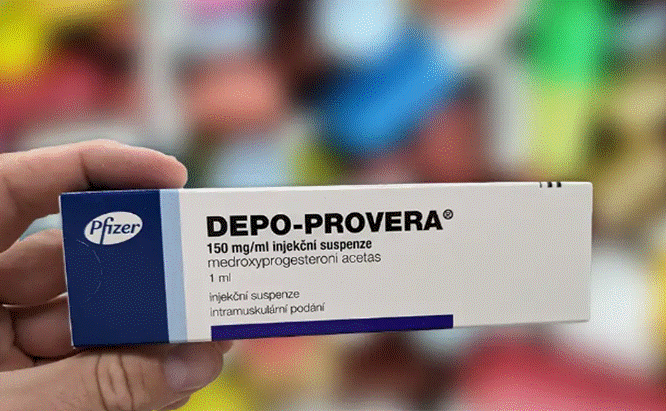For years, Depo-Provera has been marketed as a convenient and reliable birth control option. But what if the very injection meant to offer protection turned out to be a source of unexpected harm? Thousands of women have come forward with allegations that the drug caused severe side effects—some irreversible—leaving them to face physical, emotional, and financial hardships they never anticipated.
As more victims speak out, legal battles are intensifying. Depo-Provera lawsuit updates reveal a growing number of claims against the manufacturer, with plaintiffs arguing that they were never properly warned about the risks. If you have suffered adverse effects from this contraceptive, you might be wondering: Do I have legal grounds to file a lawsuit?
In this article, we’ll break down the key legal arguments behind these claims, the evidence required to prove liability, and what steps victims can take in pursuit of justice. Whether you’re seeking compensation for medical expenses, lost wages, or pain and suffering, it’s important to know your rights and options.
The Legal Grounds for Filing a Depo-Provera Lawsuit
Several legal grounds may support a Depo-Provera lawsuit, depending on the circumstances surrounding a victim’s claim. These typically fall under product liability, failure to warn, and medical negligence.
Product Liability and Manufacturer Responsibility
Under product liability laws, pharmaceutical companies have a duty to ensure that their drugs are safe for consumers. If a product is found to be defective—either due to its design, manufacturing process, or inadequate warnings—the manufacturer can be held liable for damages suffered by consumers.
One of the key legal statutes governing product liability is the Restatement (Second) of Torts § 402A, which states that a manufacturer is strictly liable if they sell a product in a defective condition that is unreasonably dangerous to users. In cases involving Depo-Provera, plaintiffs argue that the drug’s side effects, including bone density loss, blood clots, and increased cancer risks, were either downplayed or not properly disclosed.
Failure to Warn: Did the Manufacturer Provide Adequate Warnings?
Pharmaceutical companies are legally obligated to inform consumers about the risks associated with their products. The Federal Food, Drug, and Cosmetic Act (21 U.S.C. § 301 et seq.), enforced by the FDA, requires that drug manufacturers provide accurate labeling and warnings about potential adverse effects.
However, lawsuits claim that the manufacturer of Depo-Provera failed to adequately warn patients and healthcare providers about the long-term consequences of using the injection. For example, studies have linked prolonged use of the drug to osteoporosis, yet many users allege they were never told about the risk of permanent bone density loss. If a company withholds or minimizes information about severe side effects, it can be held accountable under failure-to-warn claims.
Medical Negligence: Were Healthcare Providers at Fault?
In some cases, victims may have legal grounds to file a medical malpractice claim against their healthcare provider rather than—or in addition to—the drug manufacturer. If a doctor failed to properly inform a patient about the risks of Depo-Provera or negligently administered the injection despite contraindications, they may be liable for the resulting harm.
Medical malpractice claims generally require proving that:
- A doctor-patient relationship existed.
- The doctor failed to meet the accepted standard of care.
- The failure directly caused harm to the patient.
Because medical professionals rely on drug manufacturers for safety information, these cases can sometimes overlap with failure-to-warn lawsuits. This means that not only was the doctor negligent in their administration of Depo-Provera, but the drug manufacturer also failed to provide adequate warning about potential risks.
Steps to Take If You Are Considering Legal Action
If you believe that you or a loved one has been harmed by the use of Depo-Provera, it is important to take action. Here are some steps you can follow if you are considering legal action:
- Gather evidence: Collect any medical records, prescription receipts, and other relevant documents that can help support your case.
- Consult with a lawyer: It is important to seek legal advice from an experienced attorney who specializes in medical malpractice and product liability cases. They can review your evidence and determine if you have a strong case against the doctor or drug manufacturer.
- File a complaint: Your lawyer will assist you in filing a complaint with the appropriate government agencies, such as the FDA or state medical boards.
- Consider joining a class action lawsuit: In some cases, multiple individuals may have been affected by Depo-Provera and join together in a class action lawsuit. Your lawyer can advise you on the best course of action for your situation.
- Gather evidence: Your lawyer will work with you to gather all necessary evidence to support your case, such as medical records and witness testimonies.
- Negotiate a settlement: In many cases, medical malpractice and product liability lawsuits are settled out of court. Your experienced lawyer will negotiate on your behalf to ensure you receive fair compensation for the harm caused by Depo-Provera.
- Prepare for trial: If a settlement cannot be reached, your lawyer will help you prepare for trial and represent your interests in court.
As legal proceedings continue to unfold, affected individuals should stay informed and consider their options. Holding manufacturers accountable not only provides compensation for victims but also helps prevent future harm to unsuspecting consumers. Staying informed and seeking legal representation are important steps towards justice. With the help of an experienced lawyer, you can be confident that your voice will be heard and your rights protected.



